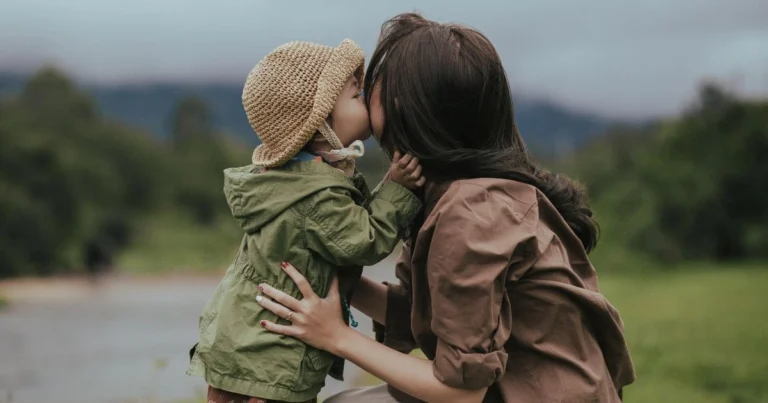Is Social Media Safe for Kids? The Ultimate Parent’s Guide to Smart Digital Boundaries
Table of Contents
Is Social Media Safe for Kids? The Ultimate Parent’s Guide to Smart Digital Boundaries
The average teen spends 3+ hours daily on social media—but between cyberbullying, algorithm-driven anxiety, and hidden predators, many parents wonder: “At what cost?”
This evidence-based guide cuts through the hype, revealing:
✔ Age-by-age safety risks you might not know about
✔ Psychological impacts backed by neuroscience
✔ Practical protection strategies beyond screen time limits
✔ How to foster digital literacy that lasts a lifetime
1. What the Research Says About Kids & Social Media
“Social media isn’t inherently good or bad—it’s about how, when, and why kids use it.” — Dr. Linda Charmaraman
The Good
✓ Community: 68% of teens find support in niche groups (Pew Research)
✓ Creativity: Platforms like TikTok boost artistic expression
✓ Education: #StudyTok helps 52% of students learn better (Oxford study)
The Bad
✖ Body image issues: 50% of girls compare themselves to edited photos by age 11
✖ Sleep disruption: Blue light + dopamine hits delay melatonin by 3+ hours
✖ Addiction triggers: Infinite scroll mimics slot machine psychology
The Ugly
⚠ Cyberbullying: 37% of kids experience it (vs. 15% who tell parents)
⚠ Predator access: 1 in 5 kids gets inappropriate messages (Thorn.org)
⚠ AI risks: Deepfake apps now enable face-swap blackmail
2. Age-by-Age Safety Guide
| Age | Risks | Smart Boundaries |
|---|---|---|
| Under 10 | Accidental exposure to adult content | No personal accounts; use kid-safe apps like Zigazoo |
| 10-13 | Social comparison anxiety | Delayed smartphone; monitor via shared family device |
| 14-16 | Sextortion scams, FOMO | Private accounts; “no strangers” rule; screen-free zones |
| 17+ | Digital footprint consequences | College prep audit: clean up public posts |
3. 7-Step Social Media Safety Plan
1. Delay Smartphones
- Wait until 14+ (Child Mind Institute recommendation)
- Starter phone alternative: Light Phone (calls/texts only)
2. Master Privacy Settings
- Turn off: Location tags, DM from strangers, facial recognition
- Enable: Restricted mode, activity alerts
3. Create a “Social Media Contract”
- “I will tell Mom/Dad if I see anything scary or weird”
- “No devices after 9 PM” (enforced via Apple Screen Time)
4. Teach Algorithm Awareness
- “If you linger on sad content, you’ll get more—it’s designed that way.”
5. Schedule Digital Detoxes
- “No Social Media Sundays” family challenge
- Vacation rules: Devices stay in hotel safe until 5 PM
6. Model Healthy Use
- No phubbing (phone snubbing at meals)
- Share your own “why I’m taking a break” moments
7. Build Critical Thinking
- Play “Real or Fake?” with edited influencer photos
- Discuss: “How does this app make money from your attention?”
4. Red Flags Your Child is in Trouble
🚩 Secretive behavior: Quickly closing apps when you enter
🚩 Mood swings after scrolling (especially Instagram Reels)
🚩 Withdrawal from IRL friends for online ones
🚩 Grades dropping + excuses about “needing” phone for school
Script for Tough Talks:
“I noticed you seem upset after being on ___. Want to talk about what you’re seeing?”
5. Safer Social Media Alternatives
| For Young Kids | For Tweens | For Teens |
|---|---|---|
| Messenger Kids (parent-controlled) | PopJam (creative) | BeReal (authentic) |
| Zigazoo (teacher-approved) | GoBubble (no DMs) | Discord (with supervision) |
Conclusion
Social media is the modern playground—it has monkey bars and strangers. By teaching digital street smarts before handing over the keys, you help kids navigate risks while enjoying benefits.
Key Takeaways:
✔ Delay smartphones until high school when possible
✔ Privacy > popularity—lock down accounts early
✔ Algorithms aren’t fate—teach conscious scrolling
✔ Your habits matter more than rules—model balance
FAQ
Q: Should I spy on my kid’s accounts?
A: Open monitoring > secrecy: “I’ll follow you because I care, not to embarrass you.”
Q: What about parental controls?
A: Use Bark (AI monitoring) + Google Family Link, but don’t rely solely on tech.
Q: My teen says “All my friends have it!”
A: “Our family prioritizes safety over trends—let’s find a compromise.”
Q: Are bans effective?
A: No—restriction without education leads to secret accounts.






